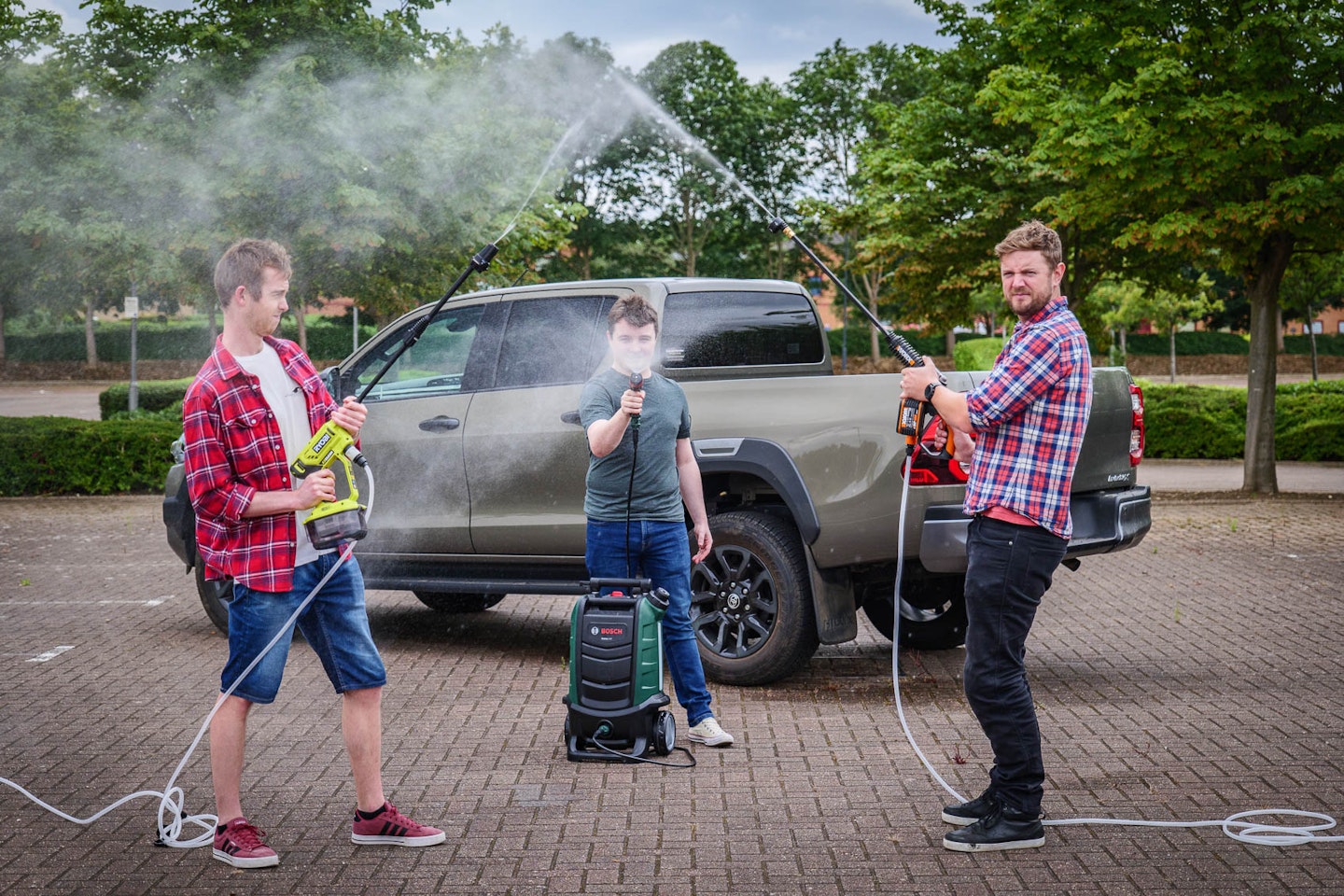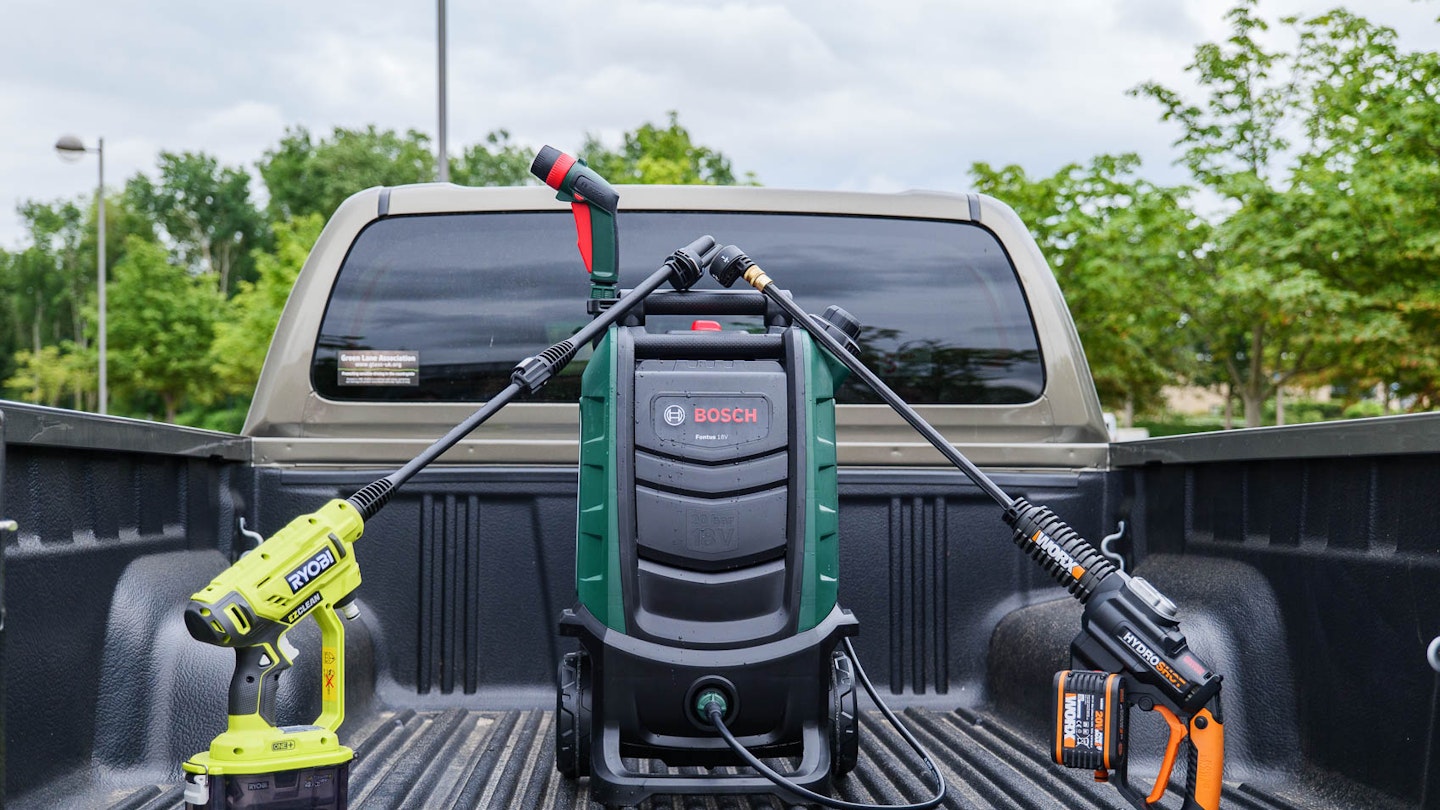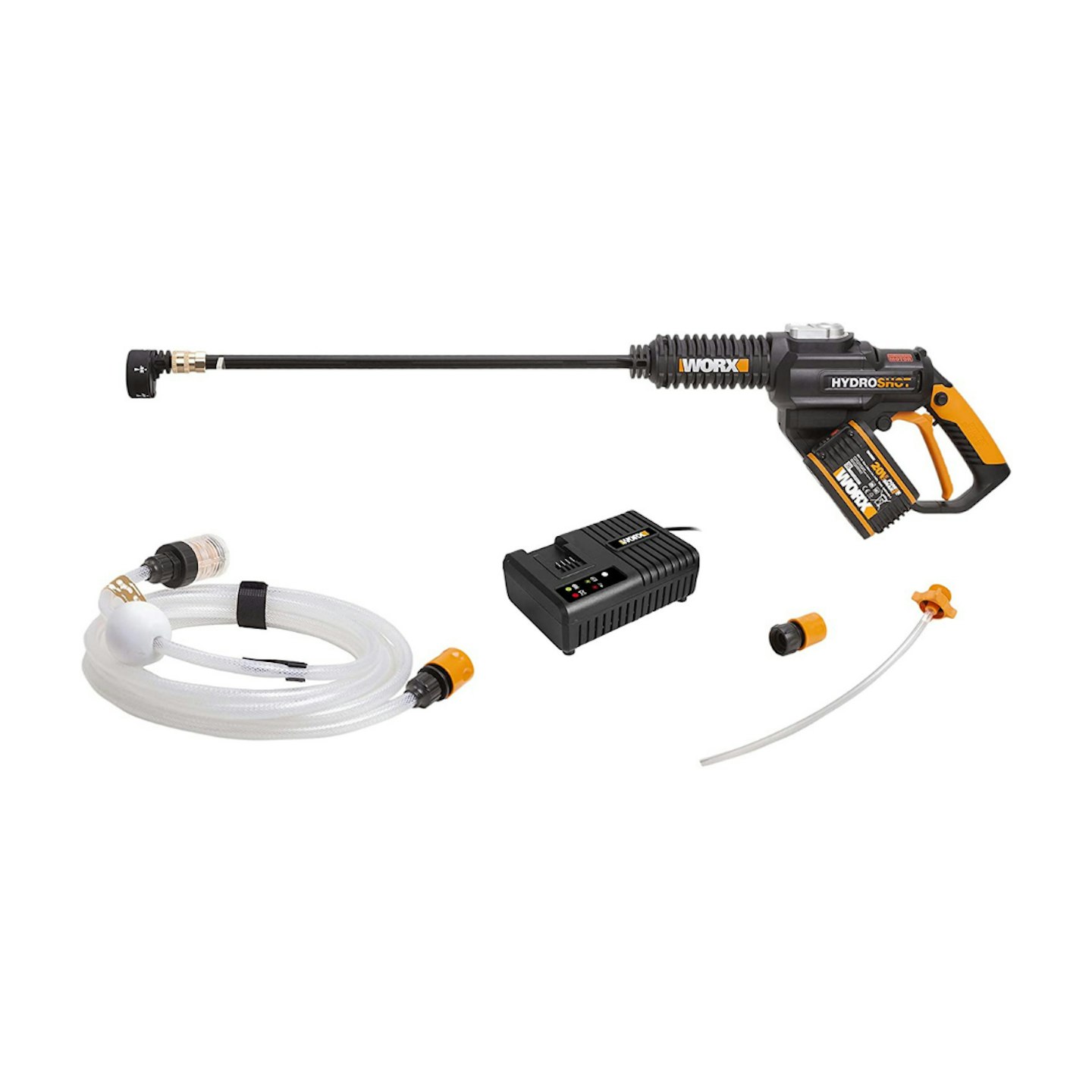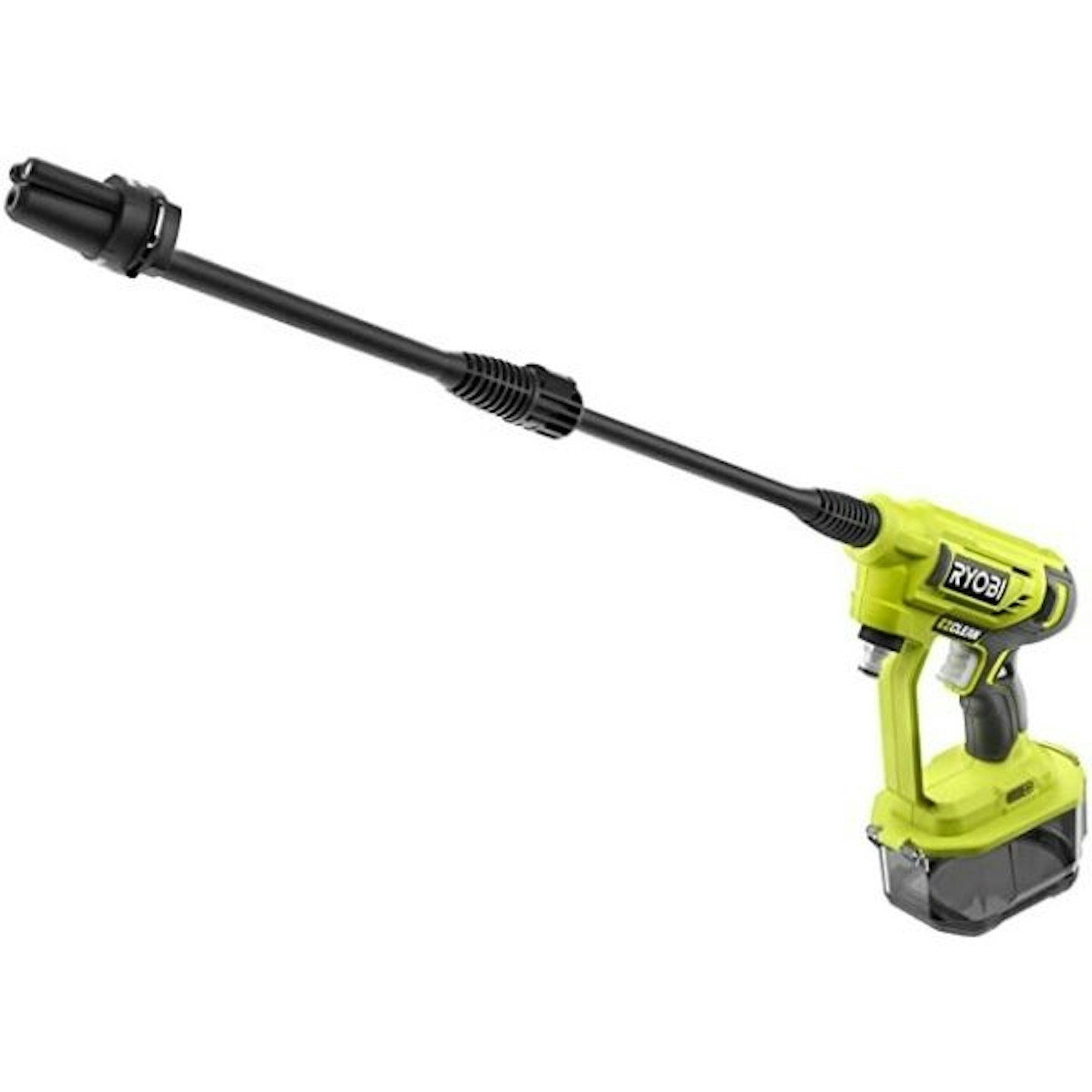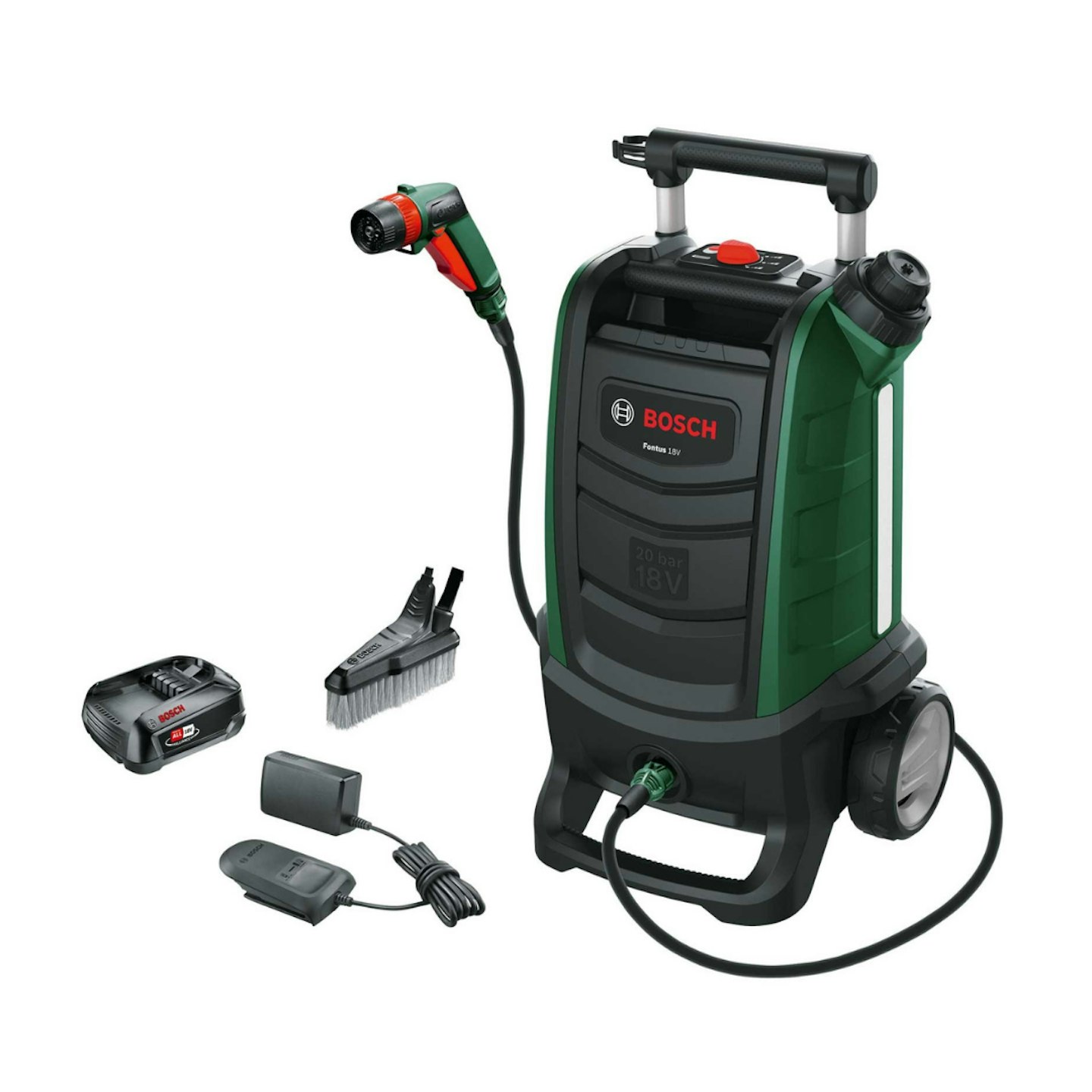These three pressure washer-looking tools you see before you are not pressure washers, got it? They are a power washer, cordless leisure cleaner and even a pressure cleaner. The difference is, err, well I'm not quite sure.
All three are designed to expel pressurised water to clean surfaces which sounds like the textbook definition of a pressure washer but I digress.
Each of these tools does share something interesting however, they are all battery-powered, ditching the cord and hopefully offering proper portable cleaning. We’ve gathered together these three cordless cleaners to answer two questions, are cordless cleaners worth your cash and if so, which one of these is best?
The contenders
Up first we have the grizzled veteran, Adam Binnie’s trusty Worx WG630E.1 Hydroshot Pressure Cleaner. Surely the bookies' favourite, the Worx has previously impressed us all with its decent water pressure, advanced brushless motor and 18V PowerShare battery.
It’s got a proven track record but has never had to defend itself against another cordless pressure washer before, let alone two.
Up next is the Ryobi RY18PW22A-0 Power Washer, the cheapest option here hailing from the 18V ONE+ range, it boasts some impressive specs. Initial impressions were solid, it was more compact than the Worx, had some good-value accessories included and was finished in a very attractive Viper Green colour.
The final competitor is the oddball Bosch Fontus Cordless Lesuire Cleaner. Named after the Roman God of wells, the Bosch distinguishes itself from the others by featuring a built-in water tank making it is the only self-contained option here.
It’s the most expensive option and lacks the power of the other two, but can Bosch’s excellent reputation and the enviable 60-minute run time make this the underdog of this test?
First impressions
All three also require some minor assembly from the box. Both the Ryobi and the Worx require about five minutes of assembly each. The Bosch on the other hand only requires you to plug the hope pipe in, screw on the head and fit the tank filter, a mere minute’s work.
The Bosch is the bulkiest of the trio and rather ungainly in comparison. Thankfully it comes with wheels and an extending travel handle so you can wheel it behind you like a suitcase. The reason for this being the generous 15-litre water tank it holds.
The Ryobi and Worx were similar in design. Both can draw water from any body of water, were handheld and offered different nozzles. The only difference really was the Ryobi's battery was installed in the base while the Worx's battery slots into the side of the unit.
What are the specs like?
One of the biggest turn-offs for cordless pressure washers is the supposed lack of power offered by the motors. And while all of these don't compete with the power offered by a corded pressure washer (like the Nilfisk we tested recently), they should be good for lighter cleaning duties, including washing a car.
It may be a surprise to hear this, but the Bosch is the least powerful option here. With a maximum pressure of just 20 bar. The Worx offers a very respectable 24 bar and the Ryobi manages 22.
Runtime is also an important consideration. The Bosch is best offering nearly a full hour of runtime before needing to be recharged. The other two won't last as long but will survive two, maybe three medium car washes before needing to be recharged.
Are there any accessories included?
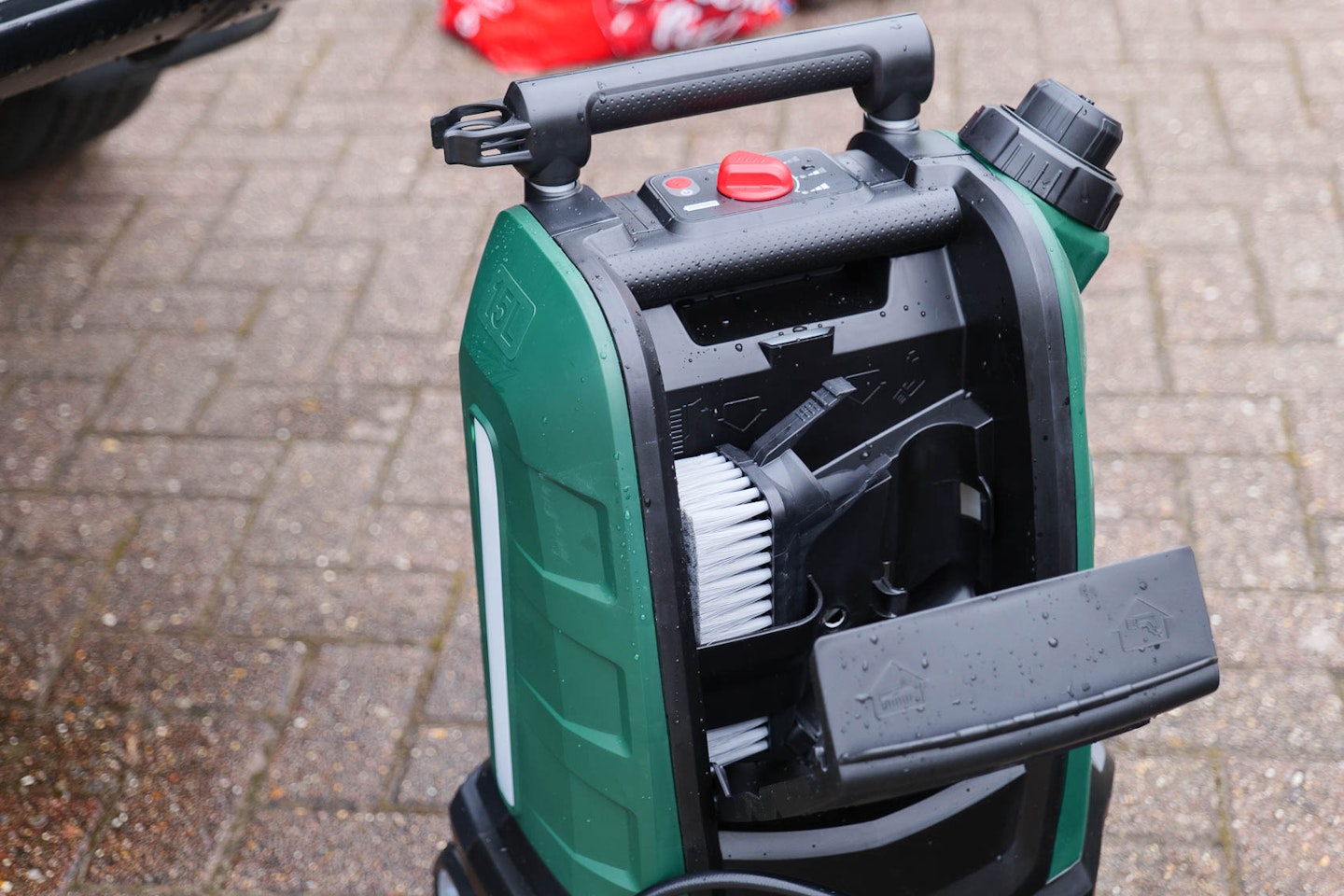
As standard, the Worx comes with nothing more than a battery charger. There are a couple of excellent attachments available that are good value. We've previously tested the soap bottle in our snow foam twin test and found it to be a good value extra.
The Ryobi was supplied with a wheel brush, foam lance and some foam detergent. These are all optional extras, but at roughly a tenner a pop, they’re good value items. The quality of these extras is excellent too.
Meanwhile the Bosch comes with a brush attachment as standard (stored in a handy compartment) but that’s it. There is an optional foam lance for snow foaming but it is quite expensive and not included for this test.
How good are they at cleaning cars?
The Ryobi
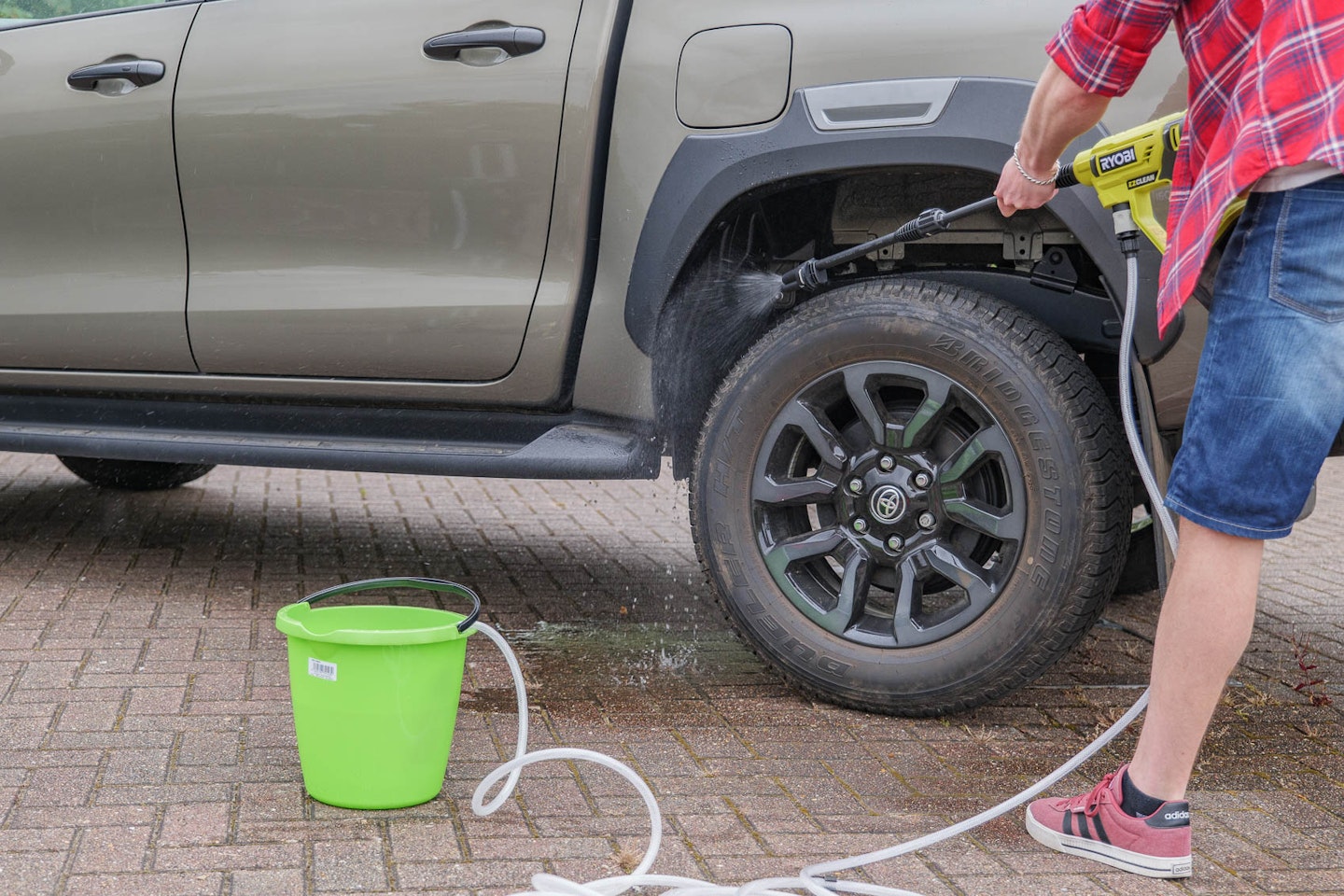
Despite being the cheapest option here the Ryobi immediately impressed us with its powerful cleaning ability. As standard, there are three nozzles to choose from and we examined all three. The Turbo setting was the most powerful and was good for whatever dirt we pointed it at, the 15-degree fan was good for smaller nooks and the rinse setting was good for wetting the surface for other cleaning tasks, like clay barring the body.
The ergonomic handle and reasonably low weight meant that it was easy to use, while the six-metre hose gives plenty of flexibility, especially as it means you don't need to move the water source too often.
One annoyance I found was that it was reluctant to stand up with the full-length nozzle attached. As the floor will get wet as you're cleaning the only way to stop the body from becoming wet is to balance the nozzle on something, a real irritant.
The attachments were good too. The wheel brush may have been made of metal but it didn't damage the alloys and was able to remove embedded dirt with ease. The foam lance too was an effective tool for snow foaming.
The Worx
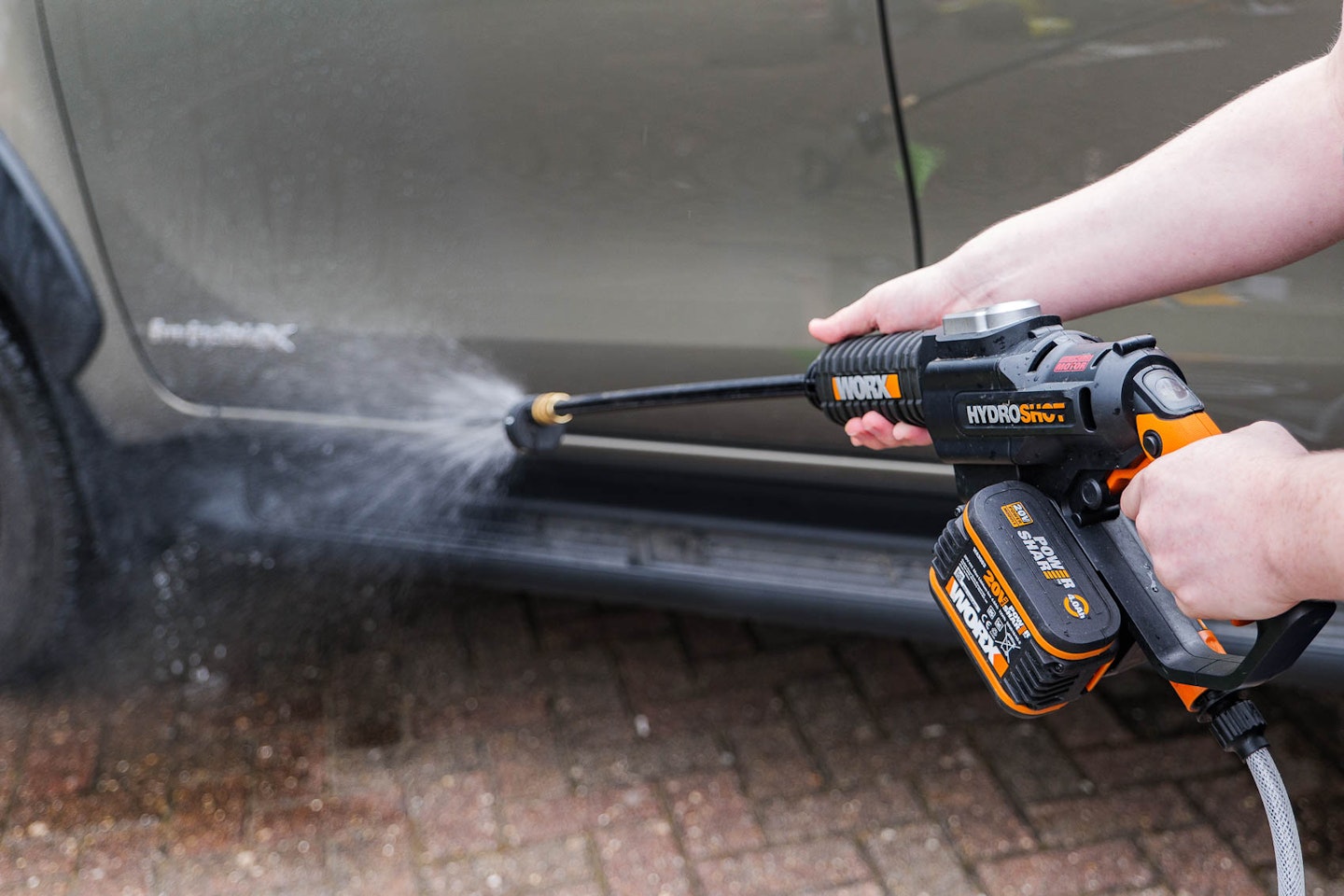
We've already concluded that the Worx is a very good option for cleaning your car. The water pressure is very good for dislodging embedded dirt and the brushless motor is the most advanced of the three.
The body of the cleaner was easy to hold for long periods and the hose placement in the base meant that it was easy to hold the Worx with two hands making control even easier. Minor criticism could be levelled at the Worx for its clunky battery placement on the side of the unit and the fact you have to place it on its side when you put it down, but these are minor issues.
It also drinks water like a panting dog in a heatwave, you'll quickly find yourself needing to refill a medium-sized bucket when using the Worx.
The Bosch
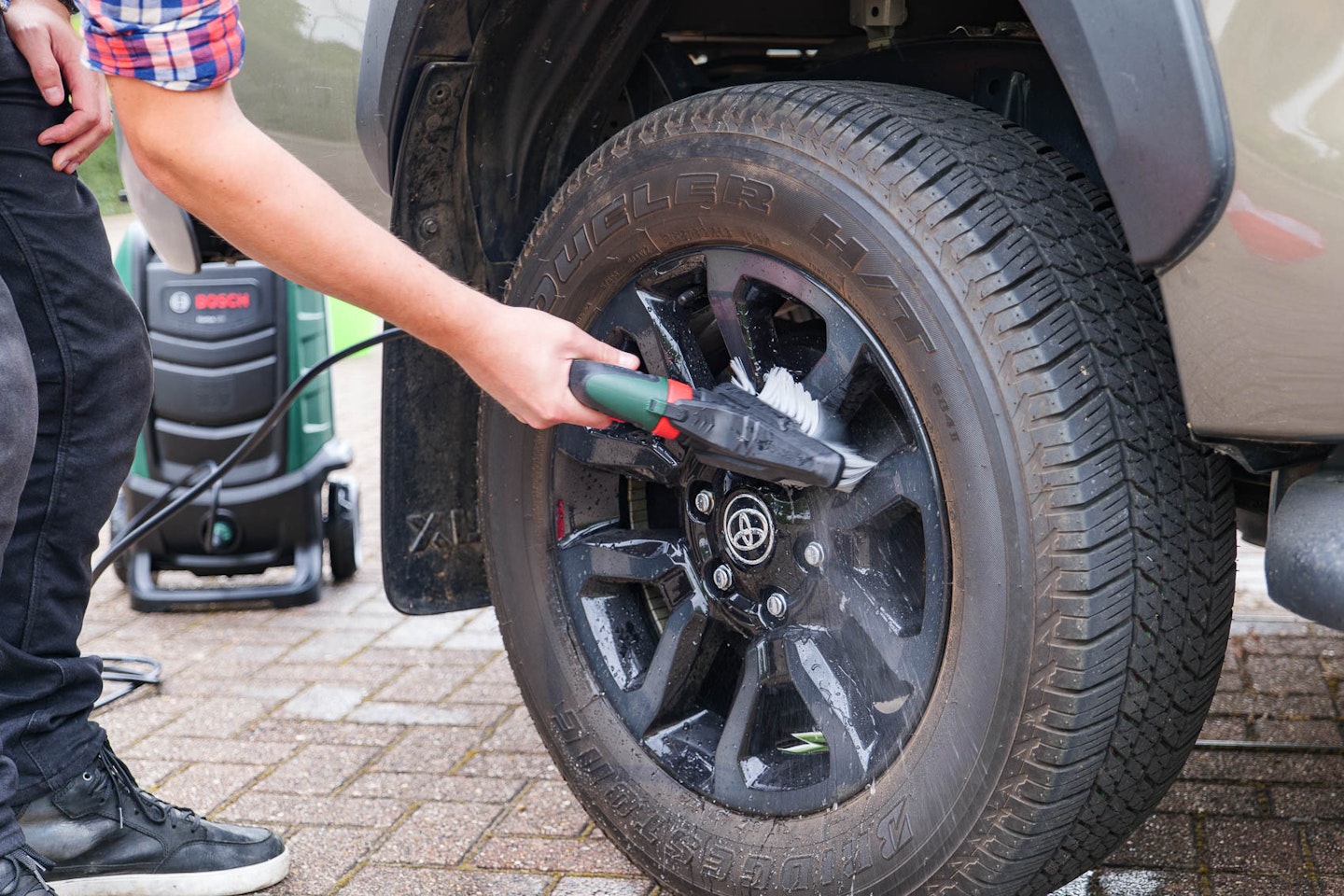
The first press on the trigger produced a pathetic dribble of water that most hoses could match which wasn't a very good showcase of its power. Admittedly this was the sprinkler setting on the lowest setting which is primarily designed for watering plants but even so, the Bosch's lack of power became immediately noticeable. Even set to the most powerful setting, it was clear that it was outclassed by the other two washers.
Where this washer did excel was with its portability. As there was no external water source to move about, you only have to move one self-contained unit. The four-metre hose may be shorter than the others but this isn't an issue. In fact, the only problem in terms of portability is that when it's full of water it weighs 22.5 kg, no issue when using the wheels, a reminder to hit the weights if you go to lift it for any reason.
The included brush was good for cleaning wheels but the overall lack of pressure means this isn't the best choice for cleaning a car. I'd conclude that the Bosch is an excellent portable hose for small jobs like washing a dog or bike but really struggles with the muck of a car.
Second opinion
Chris Williams - 'The Worx Hydroshot immediately put me in mind of a KTM X-Bow, to make an inevitable car-related analogy. It's light, reasonably powerful, well-engineered, and follows the same colour scheme. Despite being more than the Ryobi, it remained my favourite. The Ryobi bears unquestionable value, good performance, and being neon green you will never lose it. Meanwhile, the suitcase-shaped Bosch immediately proved it was more adept at being a portable shower than for power washing a car. '
The verdict
The first question is whether these are a worthy alternative to the traditional pressure washer. These aren’t the right jobs for lifting serious grime. If you’re wanting to clean a patio or a car that's had a mud bath then you're far better looking for a proper corded pressure washer that will be able to cut through the dirt easier.
That being said, if you want something genuinely portable and only need a tool for small to medium jobs then these washers are ideal. They are so much easier and quicker to set up, not to mention that they're all a lot easier to pack away and store.
Each of these cleaners is part of their manufacturer's respective 18V battery-share range meaning the batteries can be swapped into matching tools. As such if you already own a selection of other tools that can use the same batteries as these pressure washers then it makes sense to buy the tool that way.
Objectively speaking, the Worx is the most powerful, the Ryobi is by far the cheapest and the Bosch’s water tank is a clever idea (even if the unit is more suited to being a portable hose). If it was my money however then I’d champion the Ryobi simply because it's the cheapest, is really good for cleaning a car, has the best selection of other tools to use the battery with, and on a personal level, I like the shade of green it comes in.
1st place (4.5/5)
| Pros | Cons |
|---|---|
| • Good value | • Assembly is required |
| • Powerful enough for a grubby car | • Doesn’t like staying upright on its own |
| • Plenty of tool to swap the battery into |
2nd place (4/5)
| Pros | Cons |
|---|---|
| • The most powerful option here | • Assembly is required |
| • Impressive battery life | • Quite expensive |
3rd place (3/5)
| Pros | Cons |
|---|---|
| • Includes a water tank | • Weakest spray |
| • Most portable option here | • Expensive |
